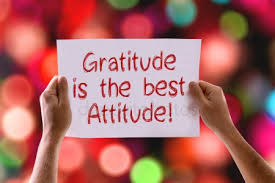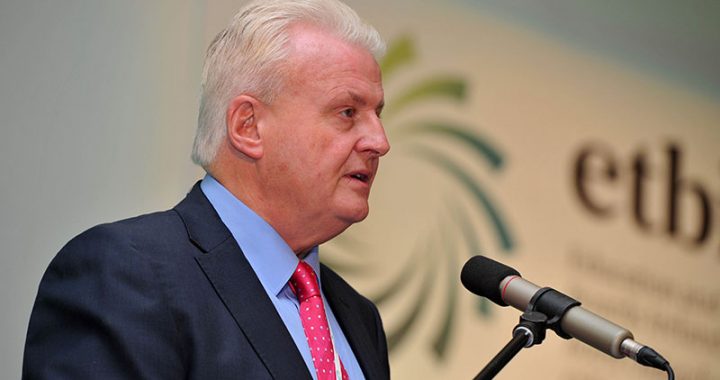
The word ‘ gratitude’ derives from the Latin word ‘gratus’ which translates as grace, graciousness or gratefulness. Gratitude is the state of feeling gratitude towards someone or something.
It was the ancient Roman philosopher Cicero ,who said that gratitude is not only the greatest of the virtues but the parent of all the others. Buddha reminds us that “a noble person is mindful and thankful of the favours he receives from others”.
Gratitude is hard to cultivate because it runs counter to ingrained human traits. We all try to teach our children to express genuine gratitude as an appropriate response to the kindness of others.
Experts tell us that gratitude is associated with emotional intelligence. Studies show that people who are less grateful have lower overall well-being and less emotional intelligence.

A lack of expressed gratitude can often relate to a need to feel in control of one’s own destiny or a need to feel solely responsible for one’s successes. It is generally accepted that gratitude is associated with emotional maturity. Expressing gratitude may appear to some people to be a further weakening of their fragile sense of self which they may perceive as exposing their vulnerability.
The perceived ingratitude of others should not trigger reactions such as anger or hurt. Such behaviour has nothing to do with us personally. The best defense is to never expect to be recognised or valued or appreciated. Remember the words of Saint Francis -“for it is in giving that we receive”. The act of giving is our reward and while expressions of gratitude are welcome we should not be reliant on them for our own happiness or fulfilment.
It was Saint Francis who also said we must seek to understand rather than be understood. That is a challenge for all of us . Perhaps the insightful advice of the ancient Greek philosopher Plato is also worth noting;” Be kind, for everyone you meet is fighting a hard battle”. This statement contains a lot of truth and should give us a deeper understanding of human relations and human reactions.
We can show support or kindness to strangers or acquaintances and should not expect gratitude. Helping others should make us feel happier and that is reward enough .

But in closer personal relationships expressing gratitude for good deeds or acts of kindness is important . Expressions of gratitude nourish and enhance those relationships while lack of gratitude can occasionally foster resentment.
In some personal relationships people can feel grateful but do not express gratitude. Human relations experts tell us that we should be willing to help each other without expecting anything in return but saying thanks and expressing our gratitude further bonds our personal relationships.
In organisations and workplaces researchers tell us that signs of gratitude enhance efficiency and promote productivity. Expressions of gratitude enhance well-being and overall organisational health by promoting positive relationships.
So perhaps Cicero was right when he claimed that gratitude is the greatest of all virtues and the parent of all others. Gratitude makes for happier humans by influencing our state of mind, our behaviour our relationships and our perspective on the world. It should never be underestimated . Remember the words of Aesop; ” Gratitude is the sign of noble souls”.


